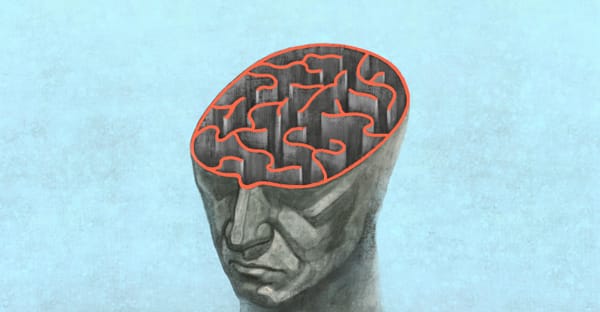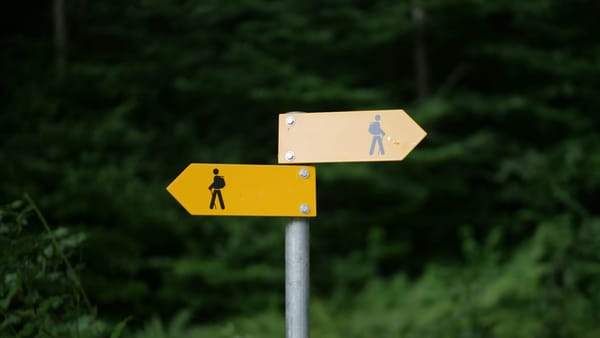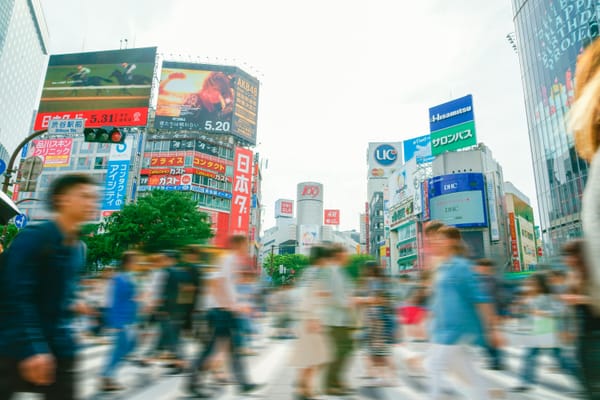Become Your Own Hero
Does escaping or filling our lives with distractions resolve our inner struggles? Here's the truth: Wherever you go, you'll still be there.

TL;DR Takeaways
• Real change happens from within, not external changes like a new job, location, or vacation. Your mind and mindset are the constants.
• Daily practices like meditation, journaling, and reflection help cultivate inner peace and resilience, no matter your circumstances.
• True fulfillment comes from personal growth and self-reliance, not chasing external solutions. You become your own hero by strengthening your character, not changing your surroundings.
The Myth of "If Only": Why Running Away Won't Save You
- "If only I could get a different job, I'd be happy."
- "If only I lived in the country, away from all this noise, I'd find peace."
- "If only I could escape for a while, everything would be fine.
We all know these thoughts. They surface when life feels overwhelming, or we don't feel content. We convince ourselves that the solution to our problems lies somewhere out there—different from where we are now. But let's pause and consider: Does escaping or filling our lives with distractions resolve our inner struggles?
Here's the truth: Wherever you go, you'll still be there. Your mind—thoughts, worries, fears—travels with you. Changing jobs and cities or taking a vacation won't erase them.
Seneca, the Stoic philosopher, puts it bluntly:
"If you want to know why all this running away cannot help you, the answer is simply this: you are running away in your own company."
You can run, but you can't escape yourself. This stark truth compels us to confront our inner selves, thoughts, and fears. It reminds us that the real change we seek is within us, not our surroundings.
The problem is not the external environment. It's what's going on inside. The desire to escape, to "run away," comes from the mistaken belief that fulfillment lies outside us—that we'll find peace somewhere else.
"How can you wonder that your travels do you no good, when you carry yourself around with you? A change of character, not a change of air, is what you need."
Seneca understood that it's not the place that matters—it's the person. The solution is internal, not external. Peace, contentment, and happiness are always within reach, but they come from within you, not your surroundings.
How Do We Change Ourselves, Not Just Our Scenery?
You don't need to pack your bags. You don't need to overhaul your life. What you need is to shift your perspective and transform your mind. Our environment can always be used to shape us, test us, and help us grow.
It's not about waiting for the "perfect conditions" to start living well. It's about intention—about using the situation you're in right now to cultivate a better mind and a better life.
Emma Tiebens said it well:
"Going inward. That's the real work. The solutions are not outside of us. Get to know who you really are, because as you search for the hero within, you inevitably become one."
This isn't just self-help jargon—it's wisdom. You don't need to change your location—you must change your mind. This powerful insight empowers us to control our lives and happiness.
Here's a practical approach to start finding contentment within, regardless of your external circumstances.
1. Establish a Routine: Do the Work.
Nothing worthwhile happens without discipline. Set up a daily routine, something you can return to no matter what's going on in your life. This is your foundation. The Stoics called this the practice of askesis—the daily training of the mind and body.
It doesn't have to be complicated. A few intentional practices, such as mindfulness, journaling, and self-reflection, will do.
2. Meditate: Go Inward.
Meditation is about getting to know your own mind. It's not about reaching enlightenment—it's about sitting quietly, observing your thoughts, and learning to detach from them. Start small—ten minutes a day is enough.
There's a good reason most of the world's religions and philosophies have the concept of prayer, mindfulness, or meditation.
- Jesus often went out alone to quiet places and prayed.
- Buddha said, "Delight in meditation, and in solitude. Compose yourself, be happy."
- Muslims pray five times a day, not only to fulfill an obligation but to achieve mindfulness.
- Another Stoic, Marcus Aurelius, wrote:
"Nowhere can a person find a quieter or more untroubled retreat than in their own soul."
You don't need to go anywhere to find peace. It's already inside you.
3. Journal: Know Yourself.
Many of the world's great leaders, such as Winston Churchill, Gandhi, and Theodore Roosevelt, kept journals. Journaling has been a valuable practice for leaders to reflect on their experiences, document their thoughts, and leave a lasting record for future generations.
Keep a journal, not for anyone else, but for yourself. It's a space to process your thoughts, express your fears, and track your growth. Over time, you'll see patterns in your thinking and learn more about yourself. This practice of self-reflection can be empowering.
Write it down. Understand your thoughts. Change your mind.
4. Read and Reflect: Search for the Hero Within.
Reading is another vital practice. Leaders are readers. The goal isn't just to consume information but to reflect on it and apply it to one's life. The Stoics constantly read and re-read the works that shaped their philosophy, always looking for guidance and insight.
Reflection on what you are reading is just as critical. I've found it helpful to keep a collection of quotes, passages, and ideas from what I read that resonate with me. I use notecards to jot these things down, and over time, these ideas become anchors in my mind, guiding me in times of difficulty.
Become Your Own Hero
No one else can save you from yourself. Self-reliance, building inner strength, and cultivating the ability to face life head-on are marks of true courage and personal freedom. They are the results of basing your responses to life's situations on your character, not your current situation.
To live a good life, you don't need to change your surroundings or wait for external circumstances to improve.
Marcus Aurelius reminds us.
"The happiness of your life depends upon the quality of your thoughts."
Becoming your own hero isn't about grand gestures or big changes. It's about doing the small things every day that build strength, resilience, and wisdom. It's about living with intention and using every situation as an opportunity to grow.
The good life is always within your reach, right here, right now. Wherever you go, there you are.
The Good Life Journal is a weekly newsletter curated from my journal, readings, and writings. Remember to subscribe to receive it emailed directly to your inbox and access exclusive content.
I'm glad to share the Good Life with you. If you feel it's beneficial, please share it with others.
~ Steve




